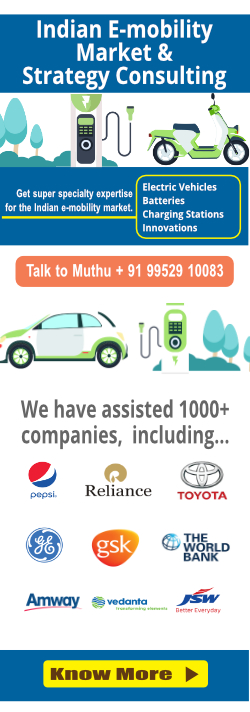While an often cited reason for electric cars not being popular on today’s roads is that they simply do not have the range that a fossil fuel powered car has. A statistical analysis by two Columbia doctoral candidates investigating the travel preferences of 150,147 households gathered between March 2008 and May 2009 reveals that 95% of the trips are below 30 miles and 95% travel less that 120 miles per day.
Though this survey is not new, it is credible information based on the number of samples considered to warrant its accuracy. With this statistic would it not be wise for a typical user to have an electric car for his daily commute and probably rent a gasoline vehicle for long distance travel? Then why are EVs not as common a sight on the roads today. The following could be some of the possible reasons:
| CLAIM | RESPONSE |
| They do not provide the range that a gasoline powered vehicle can. | Almost 95% of the commute is less than 120 miles per day which is less than the average distance run by many EVs today. |
| Cannot be charged as quickly as a gasoline vehicle can be refueled. | With reference to the same survey it is clear that almost 95% need only night time charging. Also there could be a mechanism to replace depleted batteries with charged batteries which could make EV stops at a charging station less than a minute, much lesser than refueling a gasoline car. |
| EV charging stations are not as available as gasoline refueling stations. | EV charging stations could be integrated with the current gasoline stations but have not because of the market monopoly oil companies wish to hold. |
| Not as reliable as fossil fueled vehicle. | Not anymore. EVs have done millions of miles in test and have proved roadworthy perhaps more than even gasoline vehicles. |
| Underpowered compared to similarly priced gasoline car. | Technology advances have shown trends that are otherwise. |
| Even if EV vehicles are environmentally friendly, they source almost all of their electricity from sources which end up polluting the atmosphere just as much. | This is the current situation, but we surely see the welcome penetration of renewable energy sources into the grid. There could also include local sources like solar panels, wind, biogas energy etc. |
Apart from the zero-emission advantage, EVs have other unique advantages compared to a gasoline car. EVs ordinarily have an NHV comparable to the best-in-class gasoline cars as they are run by electric motors without any highly pressurized combustion motors which are the primary cause of the Noise and Heat. They are compact and thus provide more space for passengers and luggage. If there is a reduction in the lobbying by oil companies within government circles and having board room negotiations with car manufacturers we can see a considerable drop in the price of EVs, putting their price points in comparison with the cheapest gasoline powered cars or even lower. This would be enabled by car manufacturers focusing increasingly on EVs and producing more cars to feed a greater demand consequently causing a reduction in the prices.








